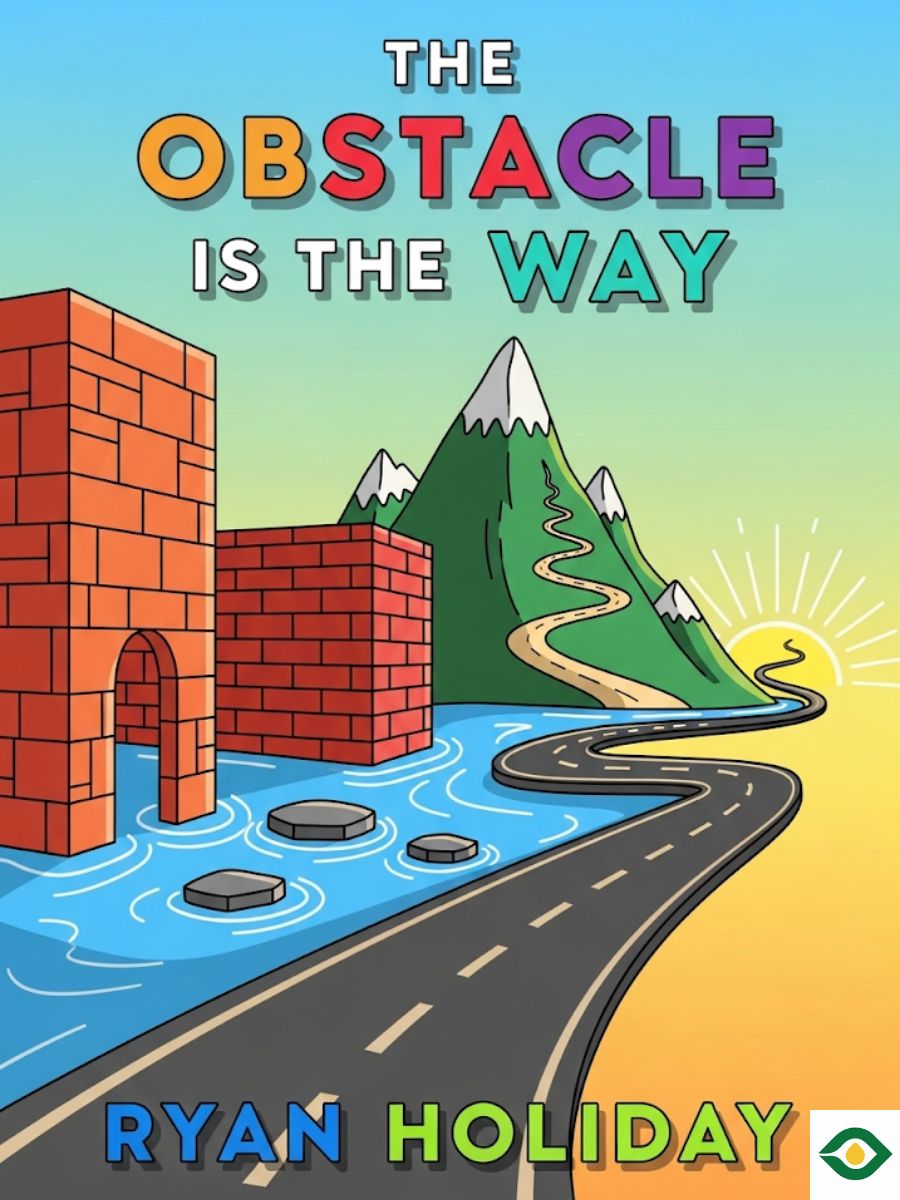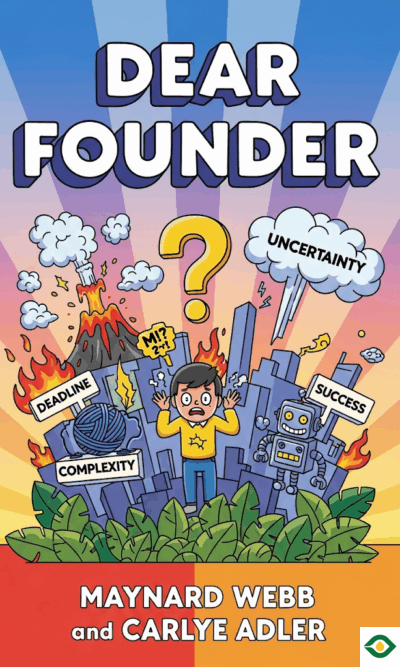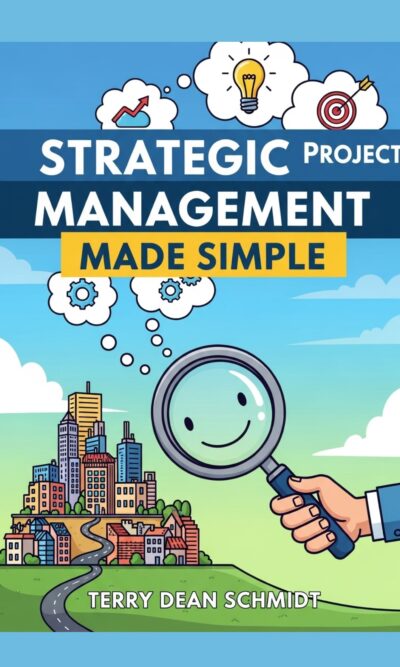Description
Life is full of challenges. We face setbacks, disappointments, and unexpected events that seem to block the way forward. At first glance, these obstacles look like problems that stop us from reaching our goals. But what if they are not barriers at all? What if they are actually the path itself? That is the message of The Obstacle Is the Way. Every obstacle carries within it a hidden chance for growth, strength, and success.
The core idea is simple: we cannot always control what happens to us, but we can control how we see it, what we do about it, and how we endure it. These three qualities—perception, action, and will—are the tools that turn challenges into stepping stones.
Perception is about how we choose to see events. For example, during financial crashes, most people panic, but some—like John D. Rockefeller—saw opportunities to learn and grow. Instead of fleeing from chaos, he stayed calm, observed, and built habits that later made him one of the most successful businessmen in history. The key is not blind optimism but clear vision. We must separate facts from emotions. We cannot always change events, but we can change the meaning we assign to them.
Another example of perception is Rubin “Hurricane” Carter, a boxer wrongly imprisoned for many years. Instead of letting prison break him, he refused to see himself as powerless. He chose not to wear prison uniforms or play the role of a prisoner. He studied, grew stronger mentally, and eventually walked free with dignity. Carter’s story shows that no matter how dark the circumstances, we always have power over how we see and respond to them.
Perspective matters. A soldier once panicked during a solar eclipse, thinking it was a bad omen. But his leader calmly pointed out that this darkness was no different from the cloak covering his eyes. Fear often comes not from reality, but from the story we tell ourselves. The same applies in everyday life. Actor George Clooney once struggled with constant rejection in Hollywood. Then he realized the problem wasn’t his lack of talent—it was the producers’ desperate need to find the right actor. With that shift in perspective, he approached auditions with confidence, and his career transformed.
But perception alone is not enough. We must act. Action is the step that moves us from theory to reality. Many people know what they should do, but they hesitate, fearing mistakes or failure. The truth is, progress requires doing, not just thinking.
Consider Demosthenes, a boy born weak, sickly, and with a speech impediment. He had every reason to give up. Instead, he trained himself with relentless discipline. He recited speeches with pebbles in his mouth, shouted into the wind, and locked himself away to study law. Eventually, he became the greatest speaker of ancient Athens. His success did not come from luck. It came from small, disciplined actions repeated again and again.
This teaches us to focus not on the distant goal, but on the immediate step in front of us. Nick Saban, a famous football coach, calls this “the process.” Don’t worry about winning the championship; worry about executing this single play correctly. Don’t stress about writing an entire book; focus on writing one good sentence today. The big goal can overwhelm us, but the small step is always manageable.
Even so, we must accept that not all actions succeed. Sometimes, despite effort and discipline, things don’t work out. Relationships end. Businesses fail. Plans collapse. That’s part of life. But failure is not the end. It is another chance to learn, to practice patience, forgiveness, or resilience. If we act with courage and it still doesn’t work, we can accept it and move forward without regret.
This brings us to the final quality: will. Will is not simply wanting something badly. True will is the strength to accept what cannot be changed, and the endurance to keep going no matter what. It is building an “Inner Citadel,” a stronghold inside ourselves that nothing external can destroy.
The Stoics, like Marcus Aurelius and Seneca, reminded themselves daily that much of life is out of our control. We cannot control other people, the weather, or even the fact that one day we will die. But we can control our thoughts, our judgments, and our choices. This inner control is where freedom lies.
Take Theodore Roosevelt. Born with severe asthma, he could have lived a weak, limited life. Instead, he trained his body relentlessly, building strength and resilience. When later hardships struck—the loss of his wife and mother, assassination attempts, fierce political battles—he was ready. He had built an inner fortress that could withstand storms.
Will also means perseverance. Life is not one obstacle, but a series of them. Think of Odysseus in The Odyssey. For 20 years he faced monsters, temptations, storms, and endless detours before finally reaching home. What carried him through was not luck, but endurance. He refused to quit. That is perseverance: the long, steady strength to face every challenge, one after another, without giving up.
Finally, thinking about death can also strengthen will. It reminds us that time is short. If death is certain, why waste life on small irritations, pointless worries, or self-pity? Knowing we will die gives urgency to living well. It pushes us to focus on what truly matters and to treat every obstacle as a chance to practice strength, patience, and wisdom.
In the end, obstacles are not interruptions in life. They are life itself. Every hardship is a chance to grow. Every setback can become fuel. The formula is simple but powerful: see clearly, act boldly, endure with strength.
Perception teaches us to see obstacles not as enemies but as opportunities. Action teaches us to face them with discipline and courage. Will teaches us to accept what we cannot change and to keep moving forward. When combined, these three qualities transform life’s barriers into bridges.
So the next time life throws something in your path, don’t complain or shrink away. Instead, remind yourself: the obstacle is not blocking the path—it is the path. Walk it with clarity, courage, and resilience, and you’ll find that every hardship becomes a step toward strength and success.





